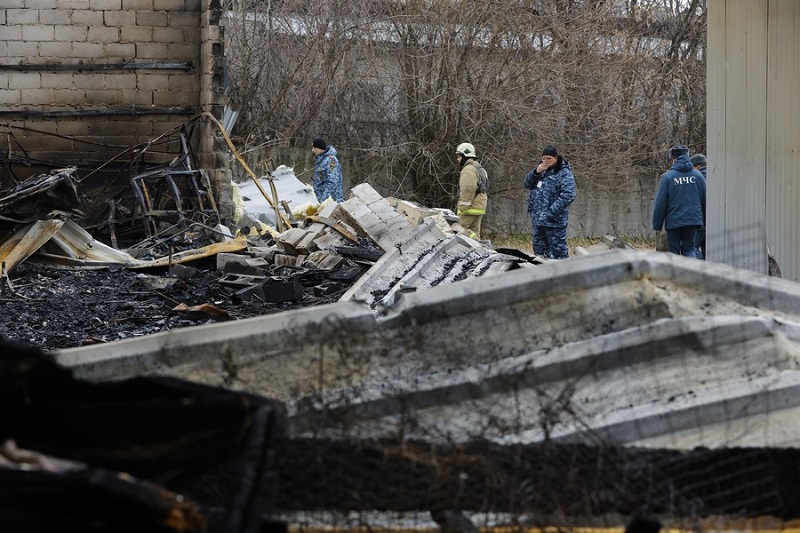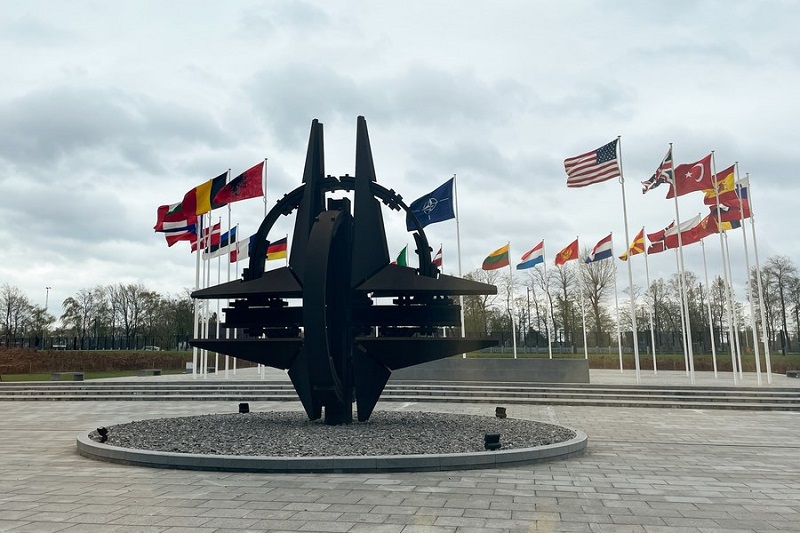While history may not repeat itself, there are echoes and lessons to be learned. Is mankind on the eve of a new World War?
Henry Kissinger has expressed fears that a 1914 situation is developing. He called World War I a “mad dash to disaster”. It is no secret that World War II was a continuation of World War I.
Has World War III already begun with the Ukraine war? But there are others ways to look at the present situation.
Two aspects of the present situation are noteworthy. First, the Ukraine situation was driven by ethnic tensions in a unitary state. Second, these ethnic tensions provided outside powers to intervene in various ways. Ultimately, civil war and then interstate war resulted.
Perhaps today’s Ukraine war is more like the Balkan Wars of 1912 and 1913. These regional wars in southeastern Europe occurred prior to the June 1914 fateful assassination of the Austrian archduke which triggered World War I.
Tensions between competing great powers and their empires had been building since the 1880s in Europe. The Balkan Wars increased those interstate tensions. Meanwhile ethnic tensions sharpened as calls for political reforms were rejected. So, all it took was an unexpected spark by the assassination at Sarajevo to explode on the Continent and to unleash a world war.
It is usual to say that the Ottoman Empire was the “Sick Man” of Europe in the 19th century. But the Austrian Habsburg Empire was also ill. Internal ethnic tensions in what came to be called the Austro-Hungarian Empire gave rise to extremist behind-the-scenes organizations. The Serbian “Black Hand” terrorist organization which assassinated the Austrian Archduke was one example.

Ethnic tensions in the Habsburg Empire were exploited by the expansionist German Hohenzollern Empire. After the forced resignation in 1890 of Chancellor Otto von Bismarck, who argued for restraint, it sought to align German-speakers in the Austrian Empire to Berlin and to its expansionist “Pan-German” policies. However, only about a third of German speakers in Austria wanted that.
Berlin, on the other hand, wanted to maintain Vienna in a subservient position and did not seek to overthrow the Habsburg monarchy.
The solution to rising ethnic tensions within the Austro-Hungarian Empire was constitutional change. Such change would have put it on a federal basis rather than on a unitary basis. The so-called “Dual Monarchy” reorganization, in effect, continued the unitary state. As a result, fundamental internal issues were not resolved but rather were exacerbated.
The Pan-German policies beginning in the 1890s sought geographic “living space” by territorial expansion into Central Europe and to the east. This expansion involved political, economic, military, and cultural tools of policy.
Meanwhile, other dark political forces behind-the-scenes in Europe sought the downfall of the Habsburg dynasty. Particularly in France there was a powerful ideological current operating behind the scenes which used the slogan and pretext “Democracies versus Autocracies.” This meant that the overthrow of the Habsburg dynasty and breakup of its “autocratic” empire would give rise to a number of “democratic” republics.
From a strategic standpoint, Berlin planned for a two-front war against two main rivals: France and Russia. German militarism and imperialism accelerated during the 1890s. German strategic planning and its armament program aimed to defeat France and Russia in war rather than through economic competition and diplomacy.
France and Russia, sensing a threat from the increasingly bellicose Kaiser’s Germany, naturally began talks that led to their “Dual Alliance” against Germany in 1894. Twenty years later, World War I broke out. Some believe that this tragic war could have been avoided through diplomacy which sought European stability by eliminating frictions that could lead to war and by making arrangements to this end for an inclusive European security structure.
Unfortunately, the rising militarism of late 19th century Europe blocked peaceful policies offered in the spirit of internationalism. Diplomacy was cast aside and war inevitably came to devastate Europe.

The war in Ukraine today seems to have echoes of the past. Two key features stand out. First, internal ethnic tensions in Ukraine exploded. Second, the external tensions between the U.S. with its NATO war machine and Russia resulted in war because diplomacy was blocked.
Many liken United States foreign policy to that of the British, Athenian, or Roman empires. Indeed, such imperial models have driven U.S. foreign policy elites since World War II. However, it is more useful today to consider the pre-World War I international situation, as Henry Kissinger has warned.
Is the U.S. with its NATO war machine behaving like Imperial Germany in the run-up to the World War I? That is to say are the U.S. and NATO exploiting ethnic factors in Ukraine for strategic gain and an eastward “lebensraum” for NATO? NATO expansion into Central and Eastern Europe has gone on for decades predictably alarming Moscow.
The Ukraine Maidan coup of 2014 launched by the U.S. and NATO partners was designed to bring Ukraine as a state into political, military, and economic alignment with Washington and Brussels. This policy echoes that of Berlin which wanted Vienna to be firmly aligned politically, militarily, and economically with it.
Internally, ethnic tensions between the Ukrainian speaking majority and the Russian speaking minority were exploited by the West for more than two decades. The post-coup regime in Kiev maintained a reactionary unitary state and rejected a progressive policy of constitutional change for a federal solution.

The post-Maidan Kiev regime took on features of the late 19th century German policy of “Pan-Germanism” and of Berlin’s policy in Austria to suppress non-German ethnic groups. Just as the German empire extremists imposed cultural Germanization in Central Europe, so too did the Kiev regime impose a policy of cultural Ukrainization against the Orthodox and Russian speaking population in eastern and southern Ukraine.
For its part, the U.S. and its NATO war machine all along have sought to impose Westernization on all of the Ukraine. For the Orthodox Russian speakers in former eastern and southern Ukraine, historic Novorossiya, Western “degenerate” values are rejected.
The U.S. and its NATO war machine aimed eastward into Central Europe and thence targeted Russia just as the Kaiser’s expansionist empire had done. Since 2015, the U.S. and NATO war machine built up Ukraine’s modern military capability and, of course, are backing it up in the present war.
In addition to blocking a federal constitution solution, a key element of the West’s policy in unleashing its proxy Ukraine war is blocking a diplomatic solution. Blocking a diplomatic solution results in the purposeful prolongation of this tragic war.
The Minsk 2 diplomatic process endorsed by the United Nations Security Council was blocked by France and Germany. The December 2021 diplomatic proposals by Russia for peace and a new European security architecture were rejected by Washington and Brussels. The hopeful and encouraging diplomatic talks in Istanbul were blocked in April 2022 by Boris Johnson.
Today, the stated war objective of the Western allies, as expressed by the U.S. Defense Secretary, is to “weaken” Russia. Additionally, the stated political objective is regime change, that is, to bring down the present government of Russia. Thus, prolonging this tragic war is fundamental to Western military and political strategy. President Joe Biden has said that the U.S. and its NATO war machine will do whatever it takes.
Echoes from the past would seem to haunt the international community today. Like the wars in the Balkans in 1912 and 1913, the present Ukraine war has raised tensions Europe wide and even worldwide. Will there be some unanticipated Sarajevo-like spark involving Poland, Romania, Moldova, and/or Transnistria that will explode and precipitate a third World War?
Time will tell. It is urgent that diplomacy be undertaken today in order to give peace a chance and to avoid a “mad rush to disaster.”
The article reflects the author’s opinions, and not necessarily the views of China Focus.